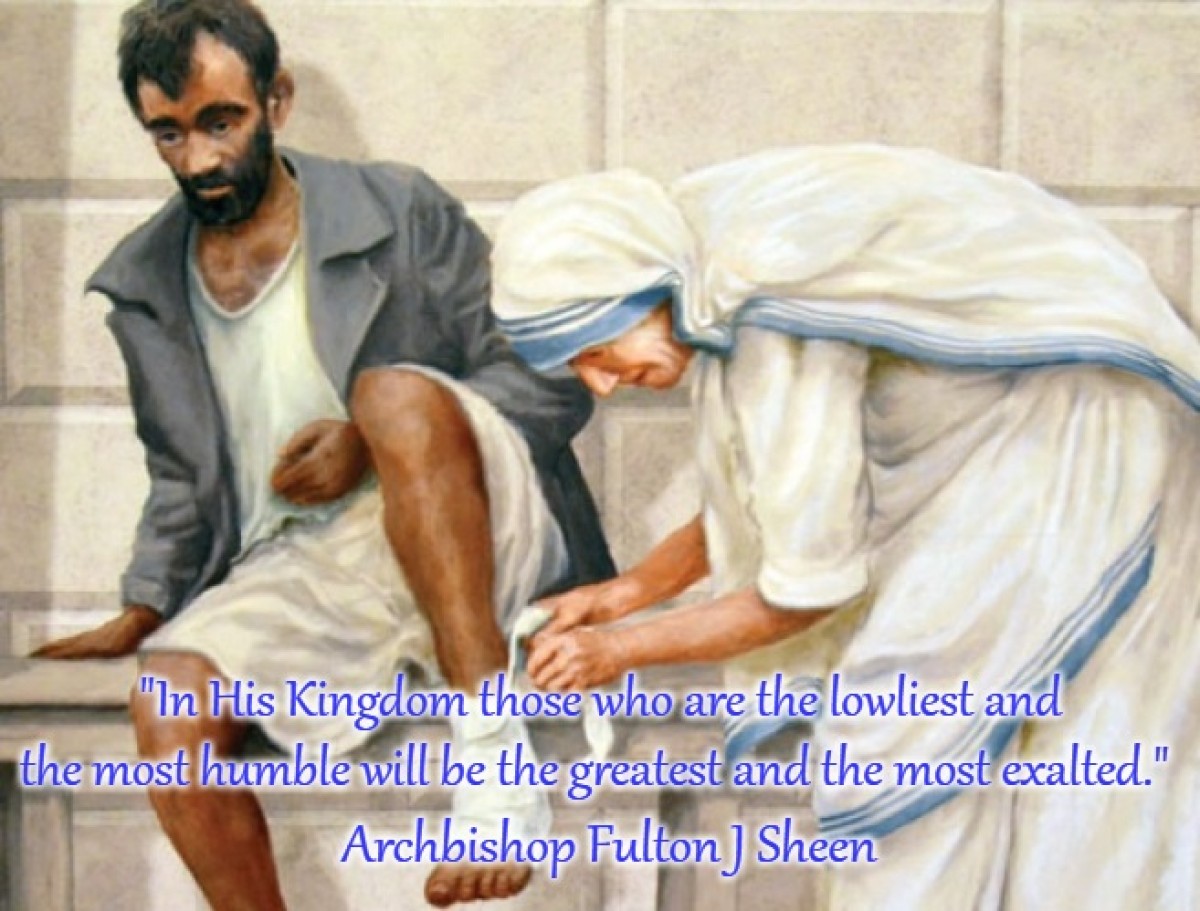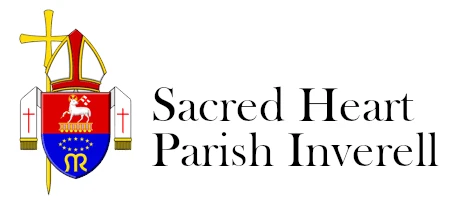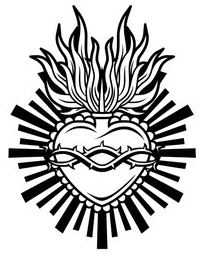29th Sunday of Ordinary Time (Year B) - 20 October
20th October 2024

“If I love Jesus, I ought to resemble Him. If I love Jesus, I ought to love what He loves, what He prefers to all else: humility.” – St Peter Julian Eymard
A reflection on today's Gospel by the Venerable Archbishop Fulton J Sheen:
"James and John, who already had made themselves prominent by resenting the rudeness of the Samaritan villagers and asking Our Lord to destroy them, now made a request. The two brothers, who once had asked that fire descend upon their enemies, now asked that a great advantage be given to them. In irreverent presumptuousness, they asked Our Blessed Lord, immediately after He had spoken of His death, to become the tool of their own vanity. ‘Grant that one of us may take his place on Thy right and the other on Thy left, when Thou art glorified’ (Mark 10:37). There was some recognition of Christ’s authority, for they implied that He was a King Who could grant requests; but the conception of His Kingdom was worldly. Family influence and personal preferment gave high places in a secular kingdom; James and John, assuming that the kingdom of God was worldly, thought that their promotion could be on that basis. But Our Blessed Lord answered them: ‘You do not know what it is you ask. Have you the strength to drink of the cup I am to drink of, to be baptised with the baptism I am to be baptised with?’ (Mark 10:38).
"The bestowal of honours in His Kingdom was not a matter of favouritism, but of incorporation to the Cross. If He had to die in order to rise to glory, they would have to die to discover glory. If He had to drink the bitter cup to overcome evil, they must drink of the cup. The 'cup' was here used as a symbol of the defeat which would be poured out to Him by faithless men. In the baptism of blood, He would be totally immersed in it; but the imagery also implied Purification or Resurrection.
"In answer to the question about drinking the chalice James and John answered, 'We can.' Though they did not understand precisely what they were accepting, Our Lord prophesied the fulfillment of their faith. James was the first to share in Christ’s baptism of blood, being murdered by Herod. John, indeed, did suffer; he lived a long life of persecution and banishment. After being put into a cauldron of boiling oil, he was miraculously preserved and died at an old age in Patmos. James became the patron of all the Red martyrs, who shed their blood because they drink of His cup. John became the symbol of what might be called the White martyrs, who endure physical sufferings and yet die a natural death.
"Now begins the quarrel. ‘The ten others grew indignant with James and John when they heard of it’ (Mark 10:41). They were indignant because they all shared the same desire. Our Lord called the ten others to Him. James and John had been given their lesson; now it was time for the other ten to receive theirs. The first lesson He gave them was a repetition of what He had suggested in Capharnaum when He placed a little child in the midst of them, namely, the lesson of humility. What they were now to be taught was not what would make them preeminent in His Kingdom, but rather the meaning of that pre-eminence. He suggested a contrast between the despotism of worldly potentates and the dominion of love in His Own Kingdom. In the earthly kingdoms those who rule, such as kings, and nobles, and princes, and presidents, are ministered unto; in His Kingdom, the mark of nobility would be the privilege of ministry or serving. In His Kingdom those who are the lowliest and the most humble will be the greatest and the most exalted. Though He regarded His Apostles as kings, they were, nevertheless, to establish their rights by being the least of men.
"But the Saviour would not merely give them a moral injunction without pointing to His Own Life, as an example of the humility He wished them to have. The whole truth was that He came not to be ministered unto, but to minister. In effect, He was saying that He was a King and He would have a Kingdom; but this Kingdom would be obtained in a way other than the one by which secular princes secured theirs. He introduced the direct relationship between His laying-down His life and the spiritual sovereignty which that death would purchase. ‘So it is that the Son of Man did not come to have service done to Him; He came to serve others, and to give His life as a ransom for the lives of many’ (Mark 10:45). Here, as elsewhere, He spoke of Himself as 'coming' into the world in order to indicate that a human birth was not the beginning of His personal existence. He began His service long before men saw Him serve in compassion and mercy. His service began when He stripped Himself of heavenly glory and girded Himself with flesh woven in the looms of Mary. The purpose of His coming into this world was to supply ransom and redemption."
(Life of Christ)
Prayer to the Holy Spirit (St Augustine of Hippo)
Breathe in me, O Holy Spirit, that my thoughts may all be holy.
Act in me, O Holy Spirit, that my work, too, may be holy.
Draw my heart, O Holy Spirit, that I love but what is holy.
Strengthen me, O Holy Spirit, to defend all that is holy.
Guard me, then, O Holy Spirit, that I always may be holy. Amen. 💐💖🙏


